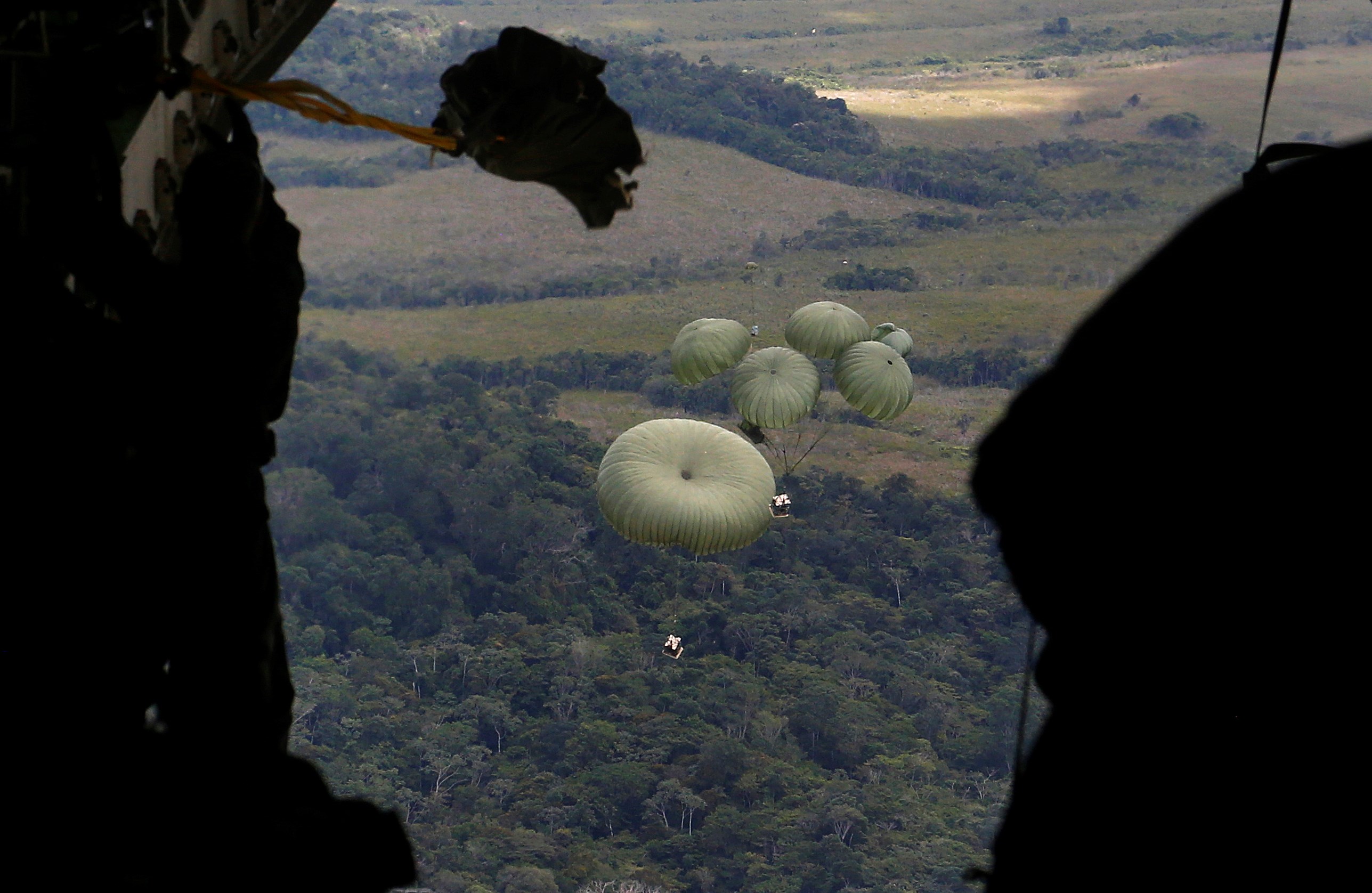Lula admin greatly reduced Amazon deforestation rates
Brazil under Lula has successfully massively reduced the rate at which deforestation is taking place just six months in.
-

Food is airdropped from a military transport aircraft to the Surucucu military base, to be delivered to Yanomami indigenous people, in Alto Vista, Roraima state, Brazil, Jan 26, 2023 (AP)
Brazilian President Luiz Inacio Lula da Silva came into the country's presidential race with numerous environmental and social pledges, chief among which was reducing the deforestation in the Amazon rainforest, which was for years taken through the wringer by his far-right predecessor, and that, he did.
After suffering paramount destruction for four years under Bolsonaro, deforestation was reduced by 33.6% during the first six months under da Silva, new government satellite data showed Thursday.
From January to June, the rainforest had alerts covering 2,650 sq km, down from 4,000 sq km during the same period last year under Bolsonaro.
This year includes a 41% drop in alerts for June, which usually kicks off the dry season, a time when deforestation tends to jump.
"The effort of reversing the curve of growth has been reached. That is a fact: we reversed the curve; deforestation isn’t increasing," the environment ministry's executive secretary, Joao Paulo Capobianco, said in Brasilia.
Full-year results will depend on a few challenging months ahead. Still, the data indicates massive progress made under Lula, as it shows that he is fulfilling the pledges made while running for president.
"Bottom line, we are prioritizing environmental law enforcement," Jair Schmitt, head of environmental protection at Ibama, Brazil's federal environmental agency, told The Associated Press.
The data compiled comes from Deter, a system managed by the National Institute for Space Research and an initiative mainly focused on detecting real-time deforestation.
Reportedly, the agency has been relying on strengthening remote surveillance, where deforestation is detected through satellite imagery, and identifying the owners of the areas hit by deforestation, allowing for the imposition of an embargo restricting access to financial loans, among other sanctions.
Another strategy has been to seize thousands of illegally raised cattle within embargoed areas, and it is effective because it is a means of immediate punishment because fines are not often paid in Brazil due to a slow appeals process.
Ibama chief Rodrigo Agostinho said the value of fines imposed in the first half of the year jumped 167% from the 2019-2022 average, and the agency embargoed 2,086 areas - up 111%
Improved deforestation data also reflect the change in rhetoric coming from the top, Schmitt underlined. Whereas Bolsonaro openly criticized Ibama and advocated for the legalization of deforested areas. Lula had pledged to rebuild law enforcement and promised to expel invaders from protected areas.
Back in May, Brazil reported the largest-ever decrease in deforestation in the Amazon forest, according to Brazil's National Institute for Space Research (INPE).
This marks the largest decrease since Brazilian President Luiz Inacio Lula da Silva assumed the presidency earlier this year.
According to the agency, the Amazon lost about 326.1 square kilometers to deforestation in April - a considerable improvement given that the month prior recorded a loss of 175.9 square miles to deforestation.
The decline since January has been consistent, the INPE states, noting that deforestation decreased by 40% compared to the same timeframe last year.
Since Lula assumed the Presidency in January, he vowed to address the pervasive issue of heightened deforestation that bloomed during former President Jair Bolsonaro's mandate.
Read more: The battle to save Yanomami's Amazon territory turns deadly
The good news about the Amazon comes after a new study that simulates how tipping points could amplify and accelerate one another predicts that ecological collapse would begin sooner than previously thought.
These results lead the authors to conclude that more than a fifth of ecosystems worldwide, including the Amazon rainforest, are in danger of experiencing a catastrophic collapse within the lifespan of an individual.
The co-leader of the study, Prof Simon Willcock of Rothamsted Research, said, "It could happen very soon," adding that we "could realistically be the last generation to see the Amazon."
The Intergovernmental Panel on Climate Change, the foremost scientific advisory body of the UN, has been more circumspect. It predicted that Amazon might reach a tipping point by 2100 in its most recent assessment.
Carlos Nobre and other well-known Brazilian scientists have cautioned that this could happen much sooner. The latest study emphasizes this worrying possibility. It notes that most studies conducted up to this point have concentrated on a single cause of devastation, such as deforestation or climate change. But the breakdown happens much faster when you add this to other dangers like water stress, deterioration, and river contamination from mining.
Despite the study's narrow focus, the authors claimed that the findings demonstrated the necessity for policymakers to move forward with greater haste.

 5 Min Read
5 Min Read








